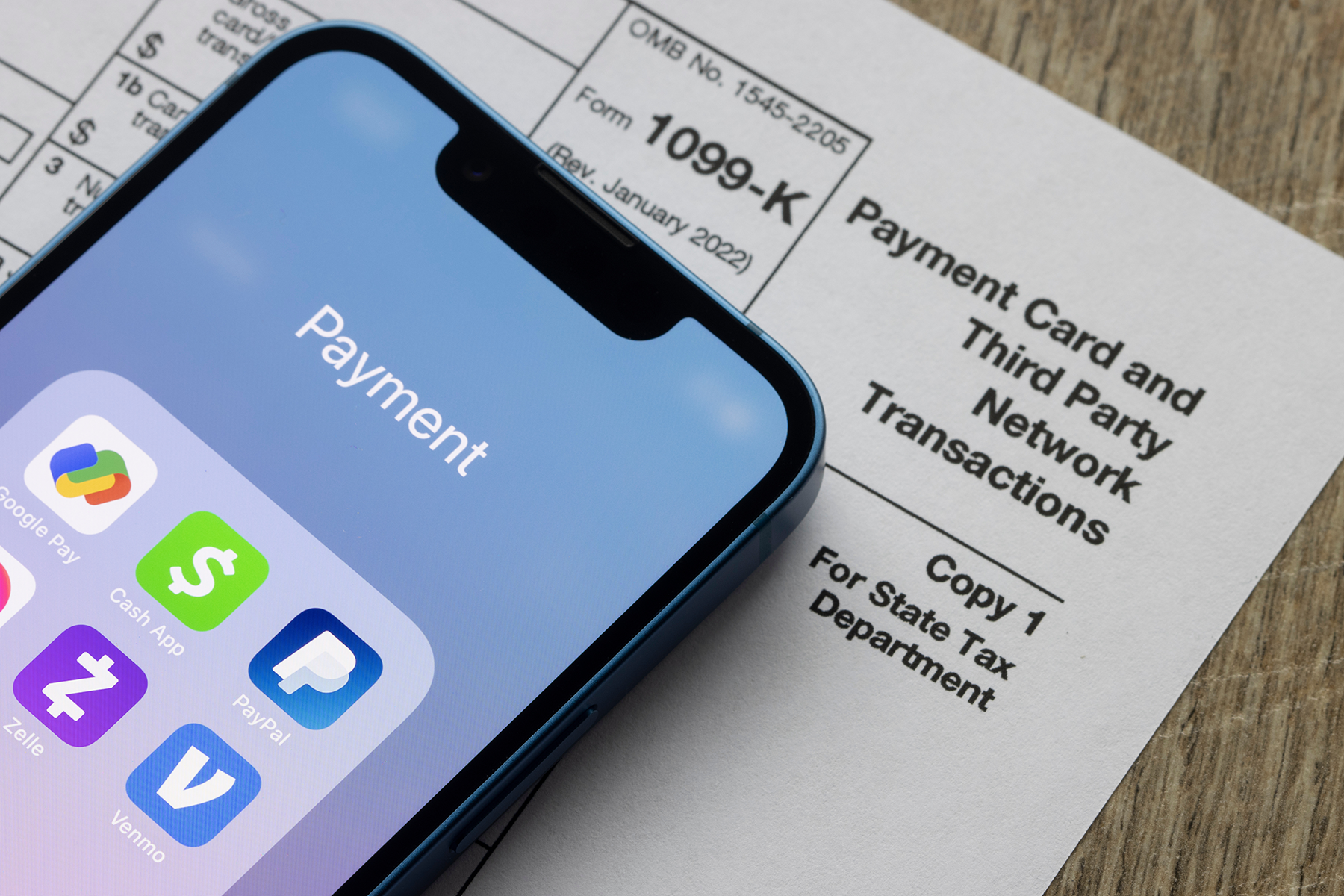100% Bonus Depreciation Ends 12/31/22
Since we’re nearing the end of the year, business owners everywhere are looking for ways to save tax dollars. One of those ways is purchasing needed equipment or vehicles. If you NEED to replace equipment or a business vehicle, by all means, get it done before the end of 2022. Here’s why!
100% Bonus Depreciation is Ending
Since the Tax Cuts and Jobs Act of 2017, businesses have used bonus depreciation to deduct 100 percent of the cost of most types of property (other than real property). Starting January 1, 2023, bonus depreciation is scheduled to decline 20 percent each year until it reaches zero in 2027.
For example, if you purchase $150,000 in equipment for your business and place it in service [key detail] in 2022, you can deduct $150,000 using 100 percent bonus depreciation. If you wait until January 1, 2023, you’ll be able to deduct only $120,000 (80 percent). Don’t get me wrong, 80% bonus depreciation ain’t a bad deal. It’s just not 100%.

Cue the music for buying the G-Wagon! *insert smirk here* If there is any piece of influencer tax advice that irks my soul, it’s the ‘buy the G-Wagon’ advice.
It’s incomplete advice. Here’s how it works:
Let’s assume that on or before December 31, 2022, your business buys and places in service a new or used SUV or crossover vehicle that the manufacturer classifies as a truck, and has a gross vehicle weight rating (GVWR) of 6,001 pounds or more. This new, or new to you, purchased vehicle gives you four benefits:
- The ability to elect bonus depreciation of 100 percent
- The ability to select Section 179 expensing of up to $27,000
- MACRS depreciation using the five-year table
- No luxury limits on vehicle depreciation deductions
Example. On or before December 31, 2022, you buy your coveted G Wagon, a qualifying vehicle, and place it in service (use it for business purposes). The “cheap” G-Wagon SUV is $131,000, for which you can claim 100 percent business use. Your business cost is $131,000. Your maximum write-off for 2022 is $131,000.
And the crowd goes wiiiilllldddd!!!
Bonus Depreciation doesn’t mean free
When people hear this way cool tax advice, they make two unfortunate assumptions.
- The government is giving you a ‘free’ car.
- People also assume that the value of the car is a dollar-for-dollar reduction of the tax liability.
Neither of these is true.
You still gotta pay for the car.
No matter how you slice it, you must still pay for the car. It doesn’t matter if you pay cash for it, or if you have a loan. You may have been able to deduct the total cost on your tax return, which sounds sexy. You still have to settle up with whoever you’re purchasing the car from. The loan payments aren’t tax deductible either, only the interest paid on the loan.
Bonus Depreciation is not a tax credit
Story: I had a client call me and tell me she was going to buy a vehicle that qualified for bonus depreciation. The vehicle was $90,000. She assumed that her tax bill ($123,000) would be reduced by $90,000, consistent with being a tax credit. I explained that purchasing the vehicle would reduce her profit by $90,000, which reduced her taxable income. The purchase would reduce her tax bill by approximately $30,000.
If she had gone through with the purchase, she would have had to pay $90,000 for the vehicle, and still have to pay the remaining $93,000 tax bill ($183,000 out of pocket).
In the G-Wagon example, the vehicle would save you approximately $39,000 in taxes. You would end up paying $131,000 to save $39.000. That math ain’t mathin’ for me. You should purchase a vehicle or any business equipment, because when you need it, with the tax break being the bonus, not just to get a tax break.
Bonus Depreciation Fine Print
Since I know someone is going to be rushing out to buy a vehicle by the end of the year just to save on taxes, here’s the fine print you need to know.
-If you sell or trade the car before the end of its useful life (5 years), you have to pay tax on the depreciated amount (recapture), and it’s taxed as ordinary income.
-There is this teeny issue with the vehicle being an ordinary and necessary expense. Deductions are a matter of legislative grace. That means the government can disallow the deduction of an expense they deem is not ordinary or necessary.
-You can’t depreciate the vehicle AND take the standard mileage
-Vehicle must be used for at least 50% of business purpose
End-of-Year Tax Savings
By all means, do what you can to benefit your business and life, and as a result, lower your tax bill. That doesn’t mean you need to buy unnecessary things just because bonus depreciation is going away.
IRS Use of Private Collection Agencies
I received a frantic call from a new client. "HELP! I got a letter saying that the IRS referred my debt to a collection agency." The first question I had was why hadn’t they told me about the past tax debt. Actually, that was the only question I had, but anywho… While I totally get that collection agencies can be scary, I promise no collection agency is scarier than the IRS. If that’s the case, why does the IRS use outside collection agencies?
Use of Private Collection Agencies is Law
Congress passed a law requiring the IRS to use private collection agencies (PCAs) to help collect overdue taxes.
Your account is sent to a PCA if:
- The IRS was unable to locate you or didn’t have the resources available to locate you.
- A year has passed and you or your representative haven’t interacted with the IRS on your account.
- More than 2 years have passed since the assessment and the account was not assigned for collection.
Private Collection Agencies Used by the IRS
Effective September 23, 2021, when the IRS assigns your account to a private collection agency, one of these three agencies will contact you on the government's behalf:
CBE Group Inc. P.O. Box 2217, Waterloo, IA 50704 Phone: 800-910-5837
Coast Professional, Inc. P.O. Box 425, Geneseo, NY 14454 Phone: 888-928-0510
ConServe P.O. Box 307, Fairport, NY 14450 Phone: 844-853-4875
What's the process when your account is sent to a Private Collection Agency?
You will receive two letters before you are contacted by a private collection agency.
First, the IRS will send Notice CP40 and Publication 4518. As with any other letter you receive from the IRS, open the envelope and read the Notice CP40 carefully. It will tell you that your overdue account was assigned to a PCA. It will also contain important information on what you can expect to happen next.
Secondly, the private collection agency will send their initial contact letter. It has information on how to resolve your overdue taxes.
Both letters contain a Taxpayer Authentication Number. It’s used to confirm your identity. It’s also for you to verify that the caller is legitimate. Keep this number in a safe place.
Private Debt Collection Agencies Call
Unlike the IRS, PCAs will call you, but only AFTER they have sent their initial contact letter. Here’s what you should do when a PCA calls you.
- Validate that the caller is representing one of the private collection agencies listed above.
- The private collection agency will ask you a series of questions to verify that they’re talking to the right person.
- You will be asked for the Taxpayer Authentication Number with the private collection agency to validate each other’s identity.
- The private collection agency will be courteous, and professional and respect your taxpayer rights while following the laws.
- The private collection agency will work with you to resolve your overdue taxes. They will NOT threaten you. If you feel the private collection agency acted inappropriately, here’s how to report it.
How do you make payments to a Collection Agency?
YOU DON’T! Even though your account has been turned over to a PCA, you only make payments to the IRS.
You can use irs.gov/payments for electronic payment options. You can use IRS Direct Pay to use direct debit (from your checking or savings account), preauthorized Direct Debit, the Electronic Federal Tax Payment System (EFTPS), or you can pay by check/money order payable to the United States Treasury.
If you use a check or money order, write your name, Social Security number, and tax year on your payment. The private collection agency will provide the appropriate IRS mailing address for the payment, or you can find it here. Even though you can mail a payment to the IRS, only use it as a last resort. Paying online is faster and more secure.
Private Collection Agencies have no enforcement authority
Private collection agencies cannot take any type of enforcement action against you to collect your debt. However, the IRS does have the legal authority to file a Notice of Federal Tax Lien (against any property) or issue a levy (take money from your bank account) to collect an overdue account.
Don’t want to deal with the PCA?
If you don’t want to deal with the collection agency, you can have your account moved back to the IRS. You must submit this request in writing to the PCA.
Takeaways -
Having your account sent to a PCA isn’t the worst thing in the world. It just means that the IRS couldn’t find you. The IRS will mail letters to your last known address. If you’ve moved and haven't filed past due returns, the IRS may not have a good address for you. They aren’t gonna hunt you down. They will simply turn your account over to a PCA.
If you have unfiled returns or unresolved tax debt, reach out to us at ETS Tax Relief: 877.482.9411.
1099K Change for 2023
The IRS issued a press release on October 24, 2022 reminding service providers and other business owners that they may receive a form 1099-K for sales in excess of $600. Third-party payment processors such as PayPal and Stripe will issue 1099-Ks to their customers in early 2023 for sales that exceed $600, regardless of the number of transactions. This will impact tax returns filed in 2023 for Tax Year 2022.
Prior to 2022, third-party payment processors issued form 1099-K if the total number of transactions exceeded 200 AND the total amount of the transactions exceeded $20,000 for businesses. Here are some examples.
Scenario 1: A provider had 3 transactions totaling $25,000. A 1099-K was not issued, because the number of transactions did not exceed 200.
Scenario 2: A provider had 1000 transactions, but the total sales amount was $19,000. A 1099-K was not issued, because even though the number of transactions exceeded 200, the amount of sales was less than $20,000.

As taxpayers became aware of the reporting requirements, many did not report the income on their taxes. There were also taxpayers that used more than one third party processor in order to avoid reporting requirements. This act is called structuring, and it’s illegal.
The American Rescue Plan Act of 2021 (ARPA) lowered the reporting threshold for third-party networks that process payments for those doing business. Now a single transaction exceeding $600 can trigger a 1099-K. But, why?
Who is TIGTA?
While the media will have you believe that all of this happened because of a President and his administration, this change in reporting was coming regardless of who was in office. Here’s why:
On December 30, 2020, The Treasury Inspector General for Tax Administration (TIGTA) released a report: Billions in Potential Taxes Went Unaddressed From Unfiled Returns and Underreported Income by Taxpayers That Received Form 1099-K Income. TIGTA is an independent organization that provides oversight of the IRS.
TIGTA reviewed 2017 tax returns to compile their report. The report states, “TIGTA identified 314,586 business taxpayers with $335.5 billion in Form 1099-K income that appeared to have a filing obligation, but were not identified as nonfilers by the IRS.” …”TIGTA identified a significant number (325,060 business non-filers and 103,991 individual non-filers with $203 billion and $3 billion in Form 1099-K income, respectively) that were not selected to be worked.”
Essentially TIGTA revealed the abuse of 1099-K reporting requirements and recommended the IRS fix it. That’s why the law changed. It had nothing to do with the President.
What about the Zelle “Loophole”?
After ARPA 2021 was released, there were several social media posts created about the ‘Zelle Loophole’. Zelle is a money transfer application that allows you to transfer money directly from one bank to another. It is not a third-party payment processor. Because of that, Zelle currently has no reporting requirements.
Social media influencers were suggesting that using the “Zelle Loophole” was a legal way to circumvent the 1099-K reporting requirements. This is absolutely and unequivocally FALSE.
Using Zelle to earn income and not report it is tax evasion - the illegal non-payment or under-payment of taxes, such as by declaring less income, profits or gains than the amounts actually earned, or by overstating deductions. Zelle’s terms of service also states: “We only grant you a limited revocable license to use the Site for your own non-commercial use subject to rules and limitations.” In other words, you’re not supposed to use it to receive business payments.
Reputable sites were purporting the myth that the IRS was going to “start” taxing money that wasn’t previously taxable. That is inherently false. Do not confuse ‘third party reporting requirements’ with your responsibility to report your income. Section 61(a) of the Internal Revenue Code defines gross income as income from whatever source derived, including (but not limited to) “compensation for services, including fees, commissions, fringe benefits, and similar items.” I.R.C. § 61(a)(1). All income is taxable unless there is a specific provision that says it’s not. You’re even required to report stolen money!
Prior to 2022, you were required to report your income, even though third party processors were not required to issue 1099-Ks. The requirement for the taxpayer to report their income is not new. The change in third party reporting requirements is what’s new.
States were already making the change
There were a few states that already lowered the threshold for reporting. Maryland, Massachusetts, Virginia, Vermont, and District of Columbia had already reduced their reporting requirement to $600 in previous years. There are other states that had lower reporting requirements, as well. Now it will be reported uniformly in all states.
If you have previously avoided reporting your income, we highly encourage you to amend those returns to accurately reflect what you earned. Give us a call if you need help: 877.482.9411.




